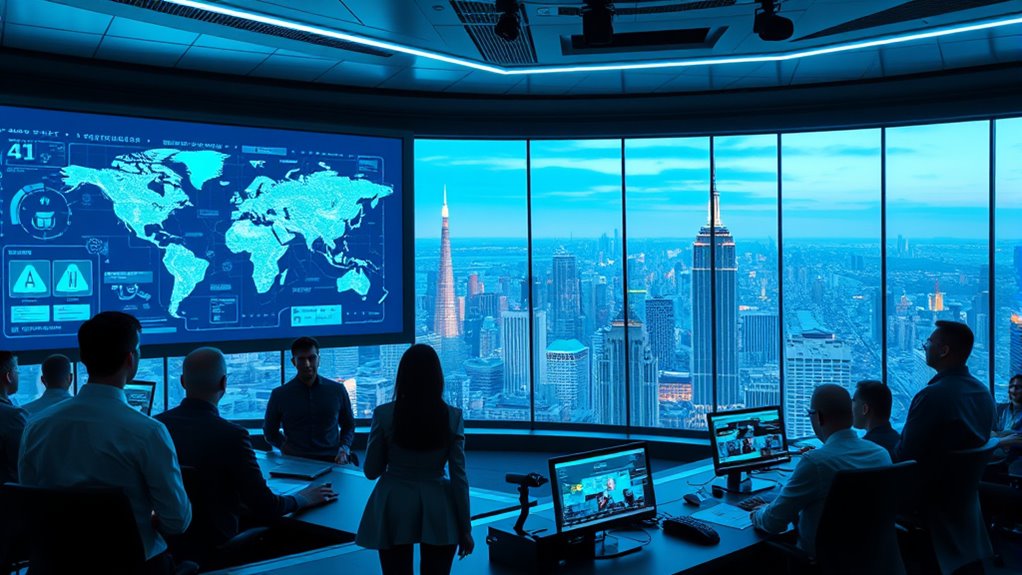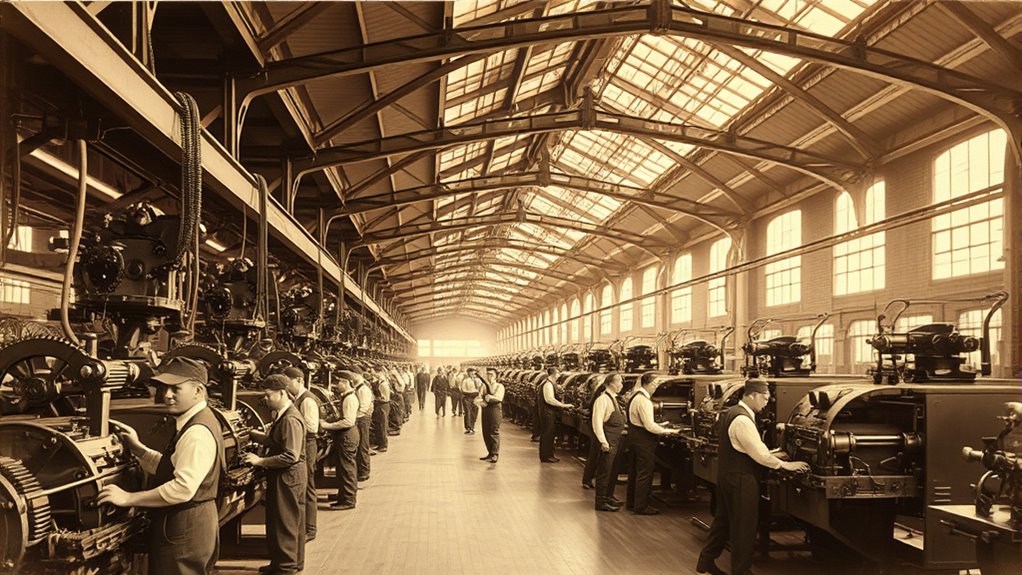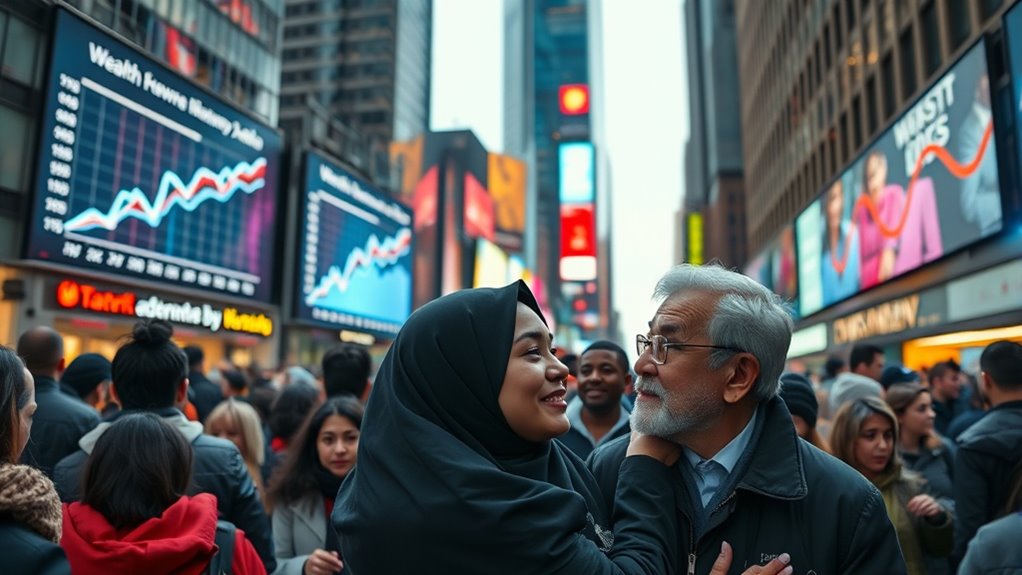AI-driven automation is rapidly reshaping global economic power by transforming industries, changing…
Browsing Category
Post-Labor Economics
94 posts
Resetting Economic Priorities: From Full Employment to Wellbeing
Amid shifting priorities, learn how redefining economic goals beyond full employment can unlock a healthier, more equitable future—discover what’s next.
Post-Labor Economics in History: Early Visions of Machine Utopia
Gazing into history reveals early visions of a machine utopia that could redefine work and society, leaving us pondering what might truly be possible.
The Great Redistribution: Policies for Fairness in an Automated Age
Discover how policies like UBI and wealth taxes could reshape fairness in an automated future, and why they might be the key to a more equitable society.
From Labor to Creativity: Shifting to Creative and Care Professions
Seeking a meaningful career shift? Discover how moving from labor-intensive work to creative and care roles can transform your life and purpose.
Autonomous Economy: Could AI Run Businesses Without Human Labor?
Theoretically, AI could operate entire businesses independently, but exploring the risks and implications reveals why this future is complex and uncertain.
The Work-Life Balance of the Future: Work as Choice, Not Necessity
Keen to discover how future work-life balance transforms obligation into choice, reshaping your well-being and daily fulfillment? Keep reading to explore the possibilities.
Moral Economics: Is a Post-Work Society Desirable or Unnatural?
Theories of moral economics question whether a post-work society is desirable or unnatural, prompting us to reconsider our deepest values and societal priorities.
Beyond Work: New Social Institutions for a Post-Labor Era
Offer insights into how society can adapt with new social institutions beyond work, shaping a resilient future in a post-labor world.
Automation and Inflation: Does High Productivity Keep Prices Low?
Greatly increasing productivity through automation can help keep prices low, but understanding the full impact requires exploring the nuanced relationship between technology and inflation.













